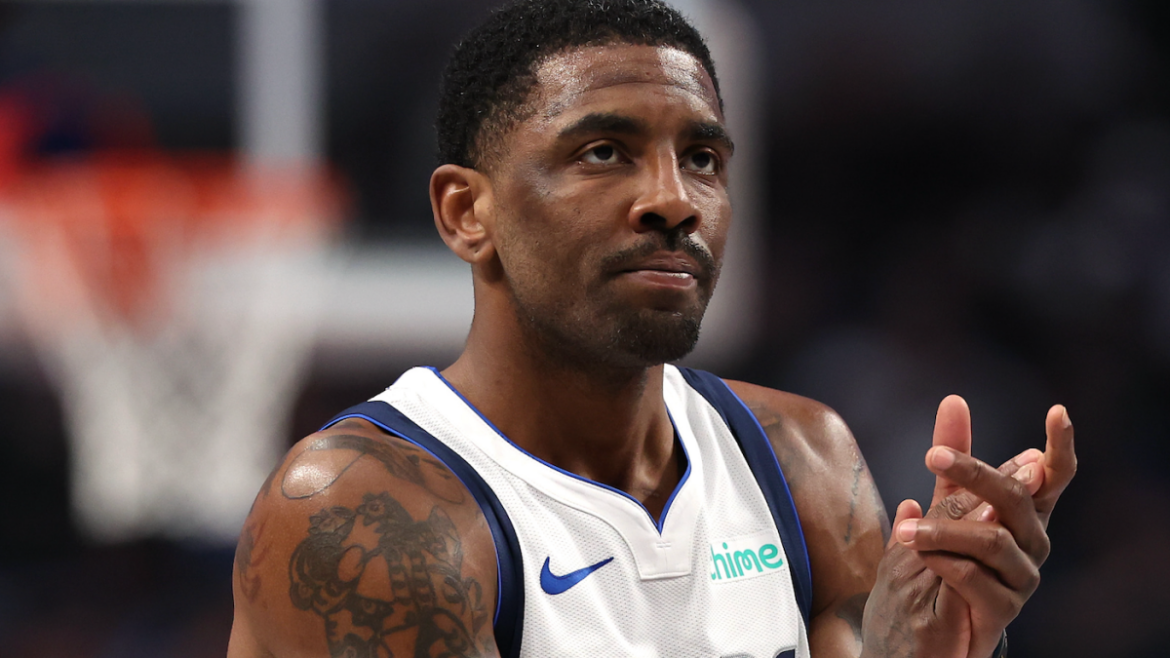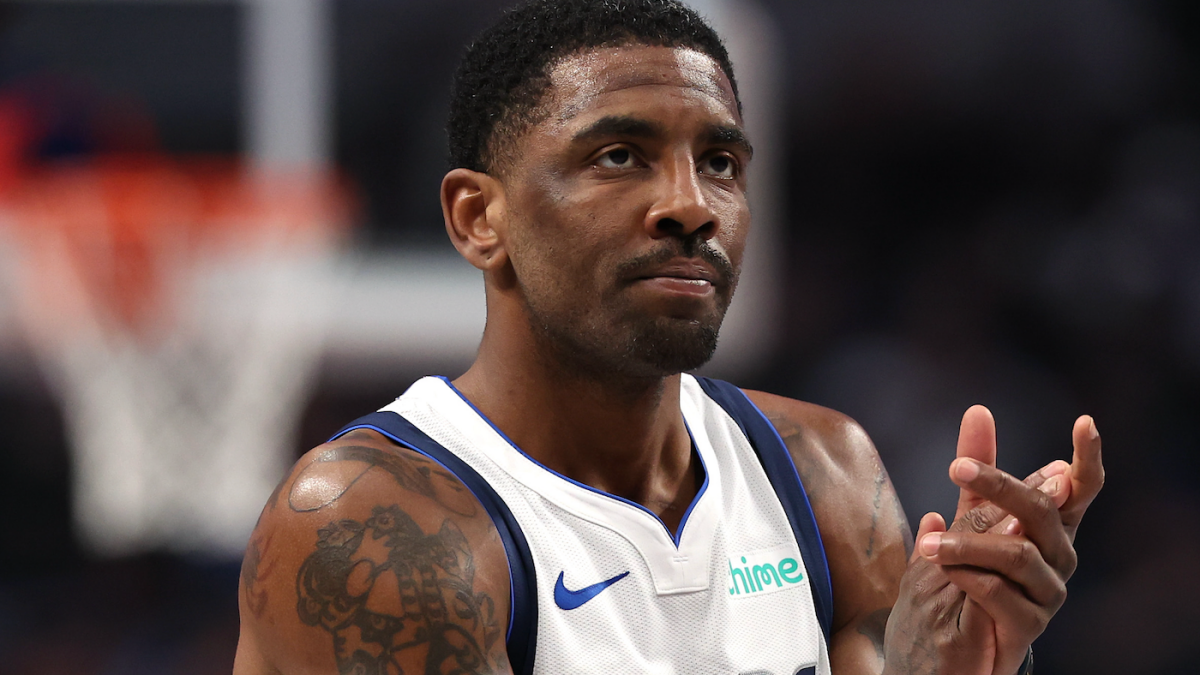Karl-Anthony Towns (KAT), currently with the New York Knicks, has recently faced intense scrutiny and online mockery following his team’s playoff exit. Dallas Mavericks star Kyrie Irving has vehemently defended Towns against this backlash, calling for fans and critics alike to cease their disparaging remarks. This defense highlights not only the camaraderie between NBA players but also raises questions about fan culture and athlete support in high-pressure professional environments.
Context of the Criticism Towards Karl-Anthony Towns
After the Knicks were eliminated from the NBA playoffs, Towns endured widespread ridicule from fans, particularly on social media platforms. Criticism focused on perceived shortcomings in Towns’s performance during critical matches, with some trolls and commentators mocking his gameplay and even personal traits. Reports indicate that some Knicks supporters were frustrated with Towns’s effort and consistency, culminating in negative team dynamics after the playoff loss.
The backlash intensified online, with memes, negative commentary, and targeted trolling directed at Towns. Some fans criticized aspects such as his defensive play, leadership, and even vocal presence on the court, including references to his attempt to alter his voice tone.
Kyrie Irving’s Public and Impassioned Defense
Kyrie Irving, a prominent figure in the NBA and a teammate at the Dallas Mavericks, publicly intervened during a recent Twitch livestream to defend Towns. He emphatically urged fans to “leave KAT alone,” calling out the incessant trolling, ridicule, and humiliation that Towns was subjected to in the aftermath of the playoffs. Irving described Towns as his “brother,” reinforcing the sense of deep solidarity and respect among NBA players.
Irving acknowledged the humorous aspect of some criticisms—such as Towns trying to deepen his voice—but made it clear that such personal jabs were unjust and unnecessary. He vowed to “attack” those who relentlessly target Towns with negative remarks, signaling his readiness to confront online bullies on behalf of his friend.
During the stream, Irving conveyed a protective stance, expressing a desire to shield Towns from the constant scrutiny that wears on athletes’ mental health. He also highlighted Towns’s skills and value, evident from his significant contributions to the Knicks despite the team’s playoff exit.
Fan and Media Response to Irving’s Defense
Irving’s intervention was welcomed by many fans, especially those who appreciate player solidarity. On social media platforms like X (formerly Twitter), fans commended Irving for speaking out where many players remain silent. Comments ranging from amusement to gratitude surfaced, with some fans expressing their intention to halt their own negative comments simply because Irving requested it.
Moreover, media outlets picked up Irving’s defense as a notable story, portraying it as a bold stand against online harassment in the sports community. This highlights a growing conversation about how athletes face not only on-court challenges but also off-court digital scrutiny and mental health pressures.
The Broader Implications for NBA Culture and Athlete Mental Health
Kyrie Irving’s vocal stand draws attention to broader issues within the NBA and professional sports generally—how players cope with fan criticism and social media trolling. Athletic careers are often accompanied by high expectations, and fans can be relentless in their judgment, especially during pivotal moments like playoffs. The vitriol directed at Towns exemplifies the sometimes toxic nature of sports fandom, where constructive criticism can descend into personal attacks and online shaming.
Irving’s defense suggests a pushback from player communities against such toxicity, emphasizing loyalty, friendship, and mental well-being. It signals that some athletes are increasingly unwilling to stand by silently while their peers face public humiliation.
Analysis of Towns’s Performance and Public Perception
Karl-Anthony Towns’s tenure with the Knicks has seen mixed reviews. While an All-NBA big man with evident offensive skills, Towns has faced criticism over defense, effort perception by his teammates, and leadership consistency. Notably, some Knicks teammates reportedly expressed frustration with Towns after the playoff exit, adding another layer to fan criticism.
Despite these challenges, Towns has received backing from several corners, including Irving and sections of the fanbase who recognize his contributions and potential. His trade from Minnesota Timberwolves to the Knicks in a blockbuster deal added further pressure, raising expectations that have fueled both hope and critique.
The Role of Player Solidarity in Shaping Public Discourse
Irving’s defense of Towns goes beyond friendship—it represents an influential voice in shaping public and fan discourse. When elite players stand up against unwarranted criticism, it fosters a culture where athletes support one another publicly, challenging the often adversarial relationship between fans and players.
This solidarity can encourage more empathy and nuanced understanding from the public, and may also inspire other players to voice support for teammates and rivals alike. It also helps humanize athletes, reminding fans that behind the performance are individuals vulnerable to the same emotional stresses as anyone else.
Conclusion: Championing Respect Amid Passionate Fandom
The situation involving Kyrie Irving and Karl-Anthony Towns highlights important dynamics in contemporary sports culture: the intersection of fandom, social media, athlete mental health, and peer support. Irving’s passionate call to “leave KAT alone” resonates as a powerful plea for respect and kindness in an environment often marked by harsh judgment and online cruelty.
As NBA fans, tapping into passion for the game is natural, but Irving’s message serves as a reminder that athletes are more than just performers—they are people deserving of dignity. The hope is that this episode helps foster a shift toward more constructive and compassionate engagement with players, balancing enthusiasm with empathy. For Towns, Irving’s backing may provide vital reassurance as he continues to navigate the pressures of professional basketball and public life.





